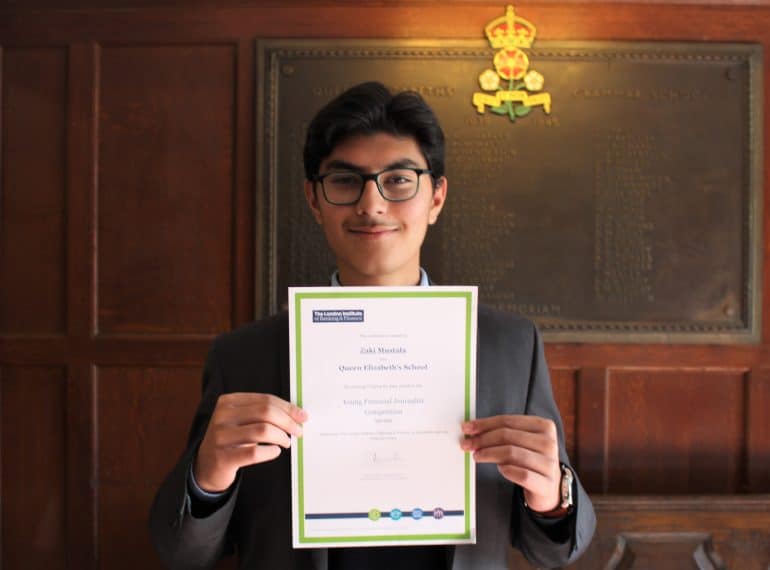
Zaki Mustafa was the “clear winner” in his age group in a prestigious financial journalism competition.
In his winning essay on the impact of technology on money, the Year 11 pupil ranged widely, starting with the first known currency in ancient Mesopotamia and ending with consideration of how modern financial companies could both use and abuse consumer data.
He won the 14–15 age group in the Young Financial Journalist competition run by the London Institute of Banking & Finance (LIBF) and the Financial Times (FT).
After reading his article, competition judge Claer Barrett, who is the FT’s Consumer Editor, said: “Zaki was the clear winner in this category. I loved his point about gambling with plastic chips and how this involves a similar sense of detachment to using contactless payments.”
Her fellow judge, mathematician, teacher, broadcaster and writer Bobby Seagull, praised the “very mature and clear writing for someone so young!”
Zaki was congratulated by QE’s Head of Economics Shamendra Uduwawala: “This was a well-argued piece of writing which gave an impressive overview of the opportunities and risks that come with the application of technology, including AI, to the world of finance.”
Reflecting on his success, Zaki explained why he had entered the competition. After starting his Economics GCSE last year, he said, “I wanted to educate myself a little bit about how technology is changing the way we view money.”
In his essay, he covered topics including:
- Today’s near-cashless society
- The rise in fraud and cybercrime, including the issue of scams that “impacts the elderly disproportionately”
- The rise of “entirely intangible” cryptocurrencies.
The 730-word composition concluded: “In summary, technology has provided huge benefits to the financial world, namely making payments far more efficient and traceable than hard cash. In spite of this, one must always remember to be vigilant, in light of the increasing risks that are associated with such a luxury.”
Zaki wins a cash prize of £150 and a certificate bearing the judges’ comments. His prize also included ten free places for QE pupils to complete the LIBF’s Lessons in Financial Education (LiFE) programme.
